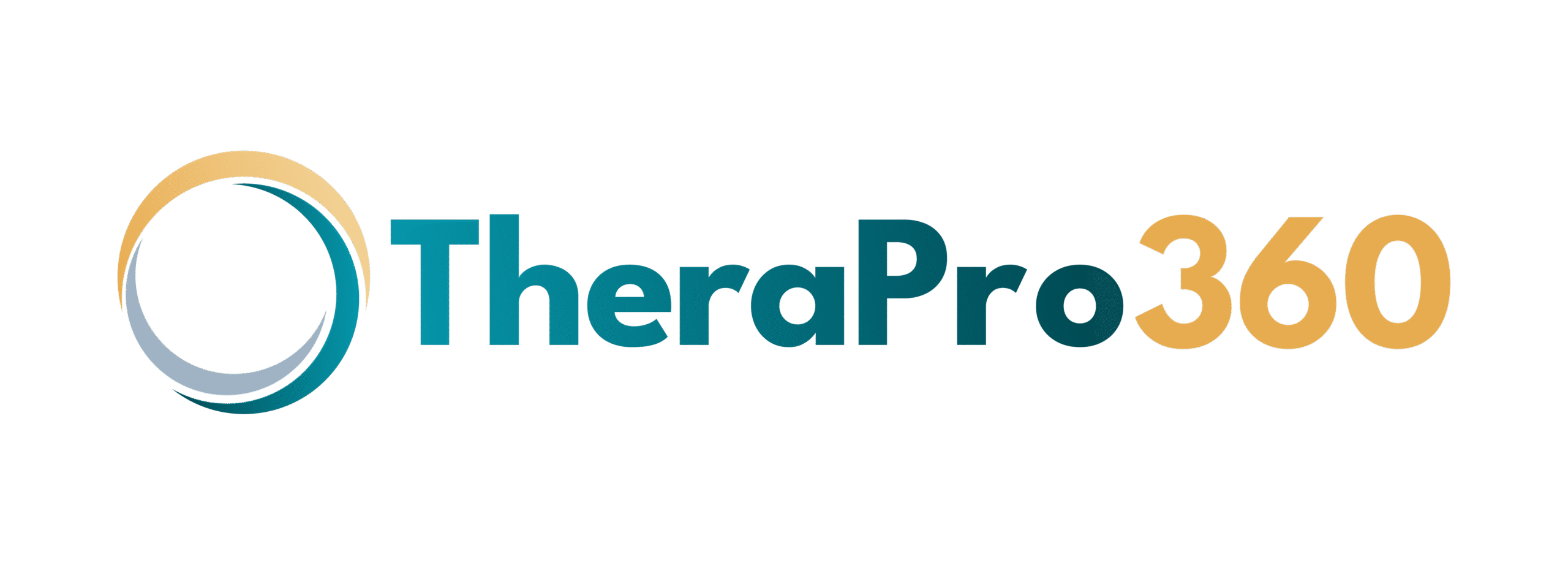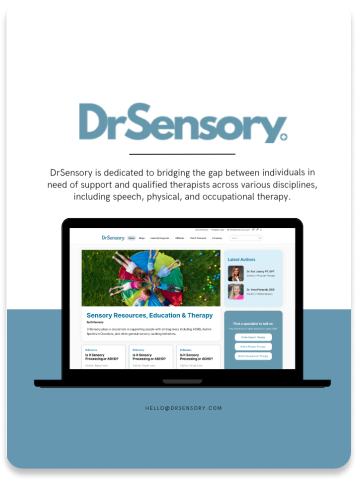
Blog
Tailored for Different Specialties: How Therapy Practice Management Software Can Benefit Various Types of Practices
Expert web designers ensure the site and software is easy to use.Tailored for Different Specialties: How Therapy Practice Management Software Can Benefit Various Types of Practices
The growing need for streamlining administrative tasks in therapy practices has led to the advent of dedicated therapy practice management software. These tools are designed not only to simplify operations but also to cater to the nuanced needs of various specialties within the field of therapy. While each practice has its own unique requirements, these software solutions offer tailored features that enhance efficiency, improve patient engagement, and ensure seamless workflows across disciplines. Below, we explore how therapy practice management software can benefit different types of therapeutic practices.

1. Mental Health and Counseling Practices
Mental health practices often face high appointment volumes and require detailed documentation to track therapy sessions, patient progress, and treatment plans. Practice management software tailored for mental health professionals provides features such as secure electronic health records (EHR), customizable progress note templates, and integrated telehealth services. These tools also simplify scheduling, billing, and compliance tracking, ensuring that counselors and therapists can focus their time and energy on delivering care. The software’s ability to handle confidential patient information securely ensures compliance with laws such as HIPAA, further strengthening its appeal in the mental health sector.
2. Physical Therapy Clinics
Physical therapy practices revolve around hands-on techniques, exercise programs, and patient rehabilitation. With therapy practice management software, physical therapists can manage treatment plans, set patient goals, and track progress in real time. These solutions often include features for managing inventory related to therapy equipment and scheduling recurring sessions, which are common in physical therapy. Additionally, patient portals allow individuals to access tailored exercise plans and educational resources, ensuring they stay engaged and accountable throughout their recovery process.
3. Occupational Therapy Practices
Occupational therapists help patients regain independence in their daily lives, often requiring client-centered tracking and care plans. Therapy management software tailored to this specialty offers robust documentation tools for monitoring fine motor skills, cognitive progress, and activities of daily living (ADL). Such software often integrates with billing systems specific to occupational therapy, helping practitioners address insurance claims efficiently. Furthermore, features like progress tracking and outcome reporting empower therapists to demonstrate clear improvements in patient functionality over time.
4. Speech and Language Therapy Practices
Speech and language therapists work with patients on communication skills, making documentation and personalized programs a top priority. Therapy practice management software supports this specialty by enabling detailed session logs, speech exercises, and audio or video recording storage for progress monitoring. Additionally, templates specific to speech therapy assessments, like articulation and fluency charts, help streamline reporting. The software can also provide scheduling features and reminders, ensuring patients have consistent check-ins and opportunities to practice their communication strategies.
5. Behavioral Therapy Practices
Behavioral therapists often use data-driven approaches to track patient behaviors and interventions. With practice management software, behavioral health professionals can log session data, track behavioral occurrences, and analyze patterns to adjust treatment plans effectively. This is particularly beneficial for therapists working with children on the autism spectrum or others requiring behavior modification strategies. Integrated parent portals also serve as a valuable feature, allowing families to stay involved and informed about therapy goals and progress.
6. Group Therapy Practices
Managing group sessions presents a unique challenge for therapists. Specialized practice management software provides scheduling tools that help organize multiple patient groups while keeping individual progress reports accessible. Additionally, tools for secure communication between group participants or facilitators ensure privacy is maintained. For billing, the software can handle both individual and shared payment arrangements, simplifying the administrative burden associated with group dynamics.
7. Multidisciplinary Practices
For practices that offer multiple services, such as a combination of physical therapy, occupational therapy, and counseling, software with multi-specialty support is critical. These platforms allow practitioners to customize workflows and documentation for each specialty, ensuring that all professionals have the tools necessary for their specific focus areas. Centralized communication and a unified billing system further enable seamless collaboration across departments, resulting in better care coordination for the patient.

Key Benefits Across All Practices
Therapy practice management software, regardless of specialty, offers universal benefits that include:
- Improved Efficiency: By automating administrative tasks like scheduling, billing, and documentation, therapists and staff can dedicate more time to patient care.
- Enhanced Patient Engagement: Many platforms include patient portals that allow clients to view appointments, access records, and engage with treatment plans, fostering better communication.
- Regulatory Compliance: These tools are designed to meet industry-specific regulations, ensuring the practice remains compliant with laws such as HIPAA.
- Data Security: With encryption and secure data practices, therapy software protects sensitive patient information from breaches.
- Scalability: Whether a practice is a solo venture or a large multidisciplinary clinic, these platforms grow with the business, adapting to increasing needs over time.
Therapy practice management software is no longer a luxury; it has become a necessity for therapy practices aiming to provide seamless care and better patient outcomes. By offering tailored solutions for various specialties, these tools enhance every aspect of running a practice, from scheduling and documentation to engagement and compliance. Whether you are in mental health, physical therapy, or any other specialty within the therapeutic field, there is a software solution designed to meet the unique needs of your practice. Integrating such a solution not only optimizes operations but sets the standard for efficient, patient-centered care in a rapidly evolving healthcare landscape.

Addressing Common Concerns About Therapy Management Software
Adopting therapy management software can significantly enhance the operations of any practice, yet some practitioners may hesitate due to prevalent misconceptions and concerns. Below, we address and refute some of the most common fears surrounding the implementation of such solutions.
1. Cost Concerns
One of the main apprehensions for many practitioners is the cost of therapy management software. While it is true that there is an initial investment, this cost should be considered in terms of the long-term benefits it brings to a practice. Modern software options come with a variety of pricing models, including subscription-based plans that make them accessible to practices of all sizes. Additionally, these platforms often lead to significant savings by reducing administrative burdens, minimizing errors, and optimizing appointment scheduling to reduce missed visits. The increase in operational efficiency and improved client satisfaction often translates into greater profitability over time, far outweighing the upfront costs.
2. Data Security
With cyberattacks and data breaches making headlines regularly, it is understandable that practitioners may worry about the security of sensitive client information. However, reputable therapy management software providers prioritize data security as a core feature. These platforms are equipped with advanced encryption technologies, robust firewalls, and secure access controls to protect practitioner and client data. Many also comply with industry-specific regulations like HIPAA in the United States, ensuring the highest standards are met for confidentiality and data protection. By using a trusted provider, practitioners actually enhance their data security compared to relying on paper records or non-specialized solutions.
3. The Learning Curve
Another common concern is the learning curve associated with adopting new technology. Practitioners may fear that the time investment to train staff and adjust to the system will disrupt the daily workflow of the practice. However, most modern therapy management software is designed with user-friendliness in mind, featuring intuitive interfaces and guided tutorials. Many providers also offer dedicated customer support and training resources to make the transition as smooth as possible. With initial training and gradual implementation, most teams find they adapt quickly and enjoy the time-saving benefits the software brings.
4. Loss of Personal Touch
For those in therapeutic professions, maintaining a personal connection with clients is essential. Some practitioners worry that integrating software might undermine this relationship. However, the opposite is often true. By automating administrative tasks such as scheduling, billing, and documentation, therapy management software frees up more time for practitioners to focus on client care. Features like client portals can also foster better engagement by allowing clients to manage their appointments, access resources, and communicate with their therapist directly. Far from detracting from personal connections, these tools can enhance them by streamlining communication and improving accessibility.
5. Integration with Existing Systems
Another point of hesitation is whether the software will integrate seamlessly with a practice’s current workflows or tools. Most modern therapy management platforms are designed for compatibility and flexibility. They often offer customizable features and support integration with other systems such as electronic health records (EHR) or billing software. Providers typically offer consultation to ensure the solution aligns with your needs, minimizing disruptions and maximizing efficiency.
6. Fear of Change
Lastly, resistance to change is a natural human tendency, especially when one is accustomed to a particular way of operating. However, in an increasingly competitive and technology-driven industry, clinging to outdated methods can hinder growth and client satisfaction. Adopting therapy management software is not just about modernizing operations; it is about positioning your practice for long-term success. It enables you to meet the evolving expectations of clients while staying compliant with industry standards.

Making an Informed Decision
While concerns about the adoption of therapy management software are valid, they are often based on outdated information or misconceptions. By assessing reputable providers, leveraging available training and support resources, and focusing on the long-term benefits, practitioners can make a confident and informed decision. Ultimately, integrating such a system empowers practices to thrive in a dynamic healthcare environment while elevating the quality of care provided.
Why TheraPro360?
Run your practice with simplicity with our streamlined scheduling, seamless telehealth integration, centralized patient portals, intuitive calendar management, and automated invoicing.
Get Started TodayAuthors and Contributors

Eva Lassey PT, DPT
Co-Founder of TheraPro360
Dr. Eva Lassey PT, DPT has honed her expertise in developing patient-centered care plans that optimize recovery and enhance overall well-being. Her passion for innovative therapeutic solutions led her to establish DrSensory, a comprehensive resource for therapy-related diagnoses and services.

Irina Shvaya
Co-Founder of TheraPro360
Irina Shvaya is the Founder of eSEOspace, a Software Development Company. She combines her knowledge of Behavioral Neuroscience and Psychology to understand how consumers think and behave.
Contents

Build Your Therapy Practice Online With a Website That Actually Works
At TheraPro360, we’re more than just software — we’re your all-in-one partner for practice management and online growth. From custom websites to SEO and marketing, we help therapists modernize their online presence and attract more patients.
Whether you're starting fresh or your current site needs a serious upgrade, our streamlined, white-glove process takes the stress out of getting results — so you can focus on what matters most: your patients.
Ready to Grow Your Practice?
👉 Schedule Your Free Discovery Call Now
Let’s build your online presence — together.














